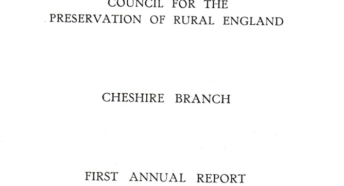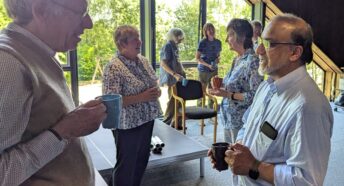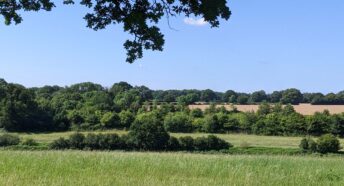Lorry park consultation response
CPRE Kent has submitted its response to the lorry park consultation, reiterating our stance that a single, huge lorry park is the wrong solution to the wrong problem.

Kent is an inevitable and unavoidable bottleneck in the flow of traffic between the UK and the rest of mainland Europe, and the rising volume of freight transiting this bottleneck is the most important issue that needs to be addressed. The disruption caused by Operation Stack in 2015 demonstrated the fragility of the logistics industry’s reliance on this concentrated route.


Instead of an expensive and damaging lorry park, we call for a solution which would offer real resilience to the nation’s trade and transport links and offer flexible alternatives to the logistics industry, both now and in the future. We believe that investment should instead be made into mandatory improvements in fleet management practices, so that no HGV driver benefits from racing to be nearest the front of a physical queue in Kent in the event of delays in the normal operations of the crossings.
This solution would also put an end to the anti-social ‘fly parking’ of HGVs which blights Kent’s roads, and it would remove the need for the implementation of ‘Dover TAP’ which holds HGVs back in the A20 approaching Dover. While this limits air pollution in the centre of Dover, it causes delays to other road users and merely shifts the air pollution to other areas, such as Aycliffe.
Hilary Newport commented: “We object in the strongest terms to the significant expenditure of public money on a built solution, in the marked absence of a transport strategy that does anything other than support and indeed encourage the steady growth of road based freight.”
In our response we also raise concerns about flooding, the impact on the landscape, heritage assets and the environment, loss of public rights of way and loss of agricultural land.
To read the full response click here.
There is still time to respond to the consultation – the deadline is 23rd september. See the link below for details:
https://highwaysengland.citizenspace.com/he/managing-freight-vehicles-through-kent/
September 12th 2016
- A number of important documents have yet to emerge. For example, a rigorous transport plan and a finalised air-quality assessment. The latter is critical given that allocations at Teynham will feed extra traffic into AQMAs.
- There seems to be no coherent plan for infrastructure delivery – a key component of the plan given the allocations being proposed near the already crowded Junction 7.
- There seems to have been little or no cooperation with neighbouring boroughs or even parish councils within Swale itself.
The removal of a second consultation might have been understandable if this final version of the plan were similar to that being talked about at the beginning of the consultation process. It is, however, radically different in the following ways:
- There has been a major shift in the balance of housing allocations, away from the west of the borough over to the east, especially around the historic town of Faversham. This is a move that raises many concerns.
- A new large allocation, with accompanying A2 bypass, has appeared around Teynham and Lynsted, to which we are objecting.
- Housing allocations in the AONB around Neames Forstal that were judged “unsuitable” by the council’s own officers have now appeared as part of the housing numbers.
- Most of the housing allocations being proposed are on greenfield sites, many of them on Grade 1 agricultural land – a point to which we are strongly objecting.
Concerns about the rush to submit the plan
The haste with which the plan is being prepared is especially worrying given the concentration of housing in Faversham. If the town is to take a large amount of new housing, it is imperative that the policies concerning the area are carefully worked out to preserve, as far as possible, the unique nature of the town. The rush to submit the plan is likely to prove detrimental.
As Swale does not have a five-year land housing supply, it is open to speculative development proposals, many of which would run counter to the ideas contained in the current plan. Some are already appearing. This is a common situation, and one that, doubtless, is a reason behind Swale’s haste.
Our overriding fear, however, is that this emphasis on haste is ultimately going to prove counterproductive. This is because it is our view that the plan, in its current form, is unlikely to pass independent examination. We are urging Swale to listen to and act upon the comments being made about the plan and to return the plan to the council with appropriate modifications before submitting it to the Secretary of State.
Essentially, this means treating the current consultation not as the final one but as the ‘lost’ second consultation.
The consultation ends on Friday 30 April and we strongly urge residents to make their opinions known if they have not already done so.
Further information








